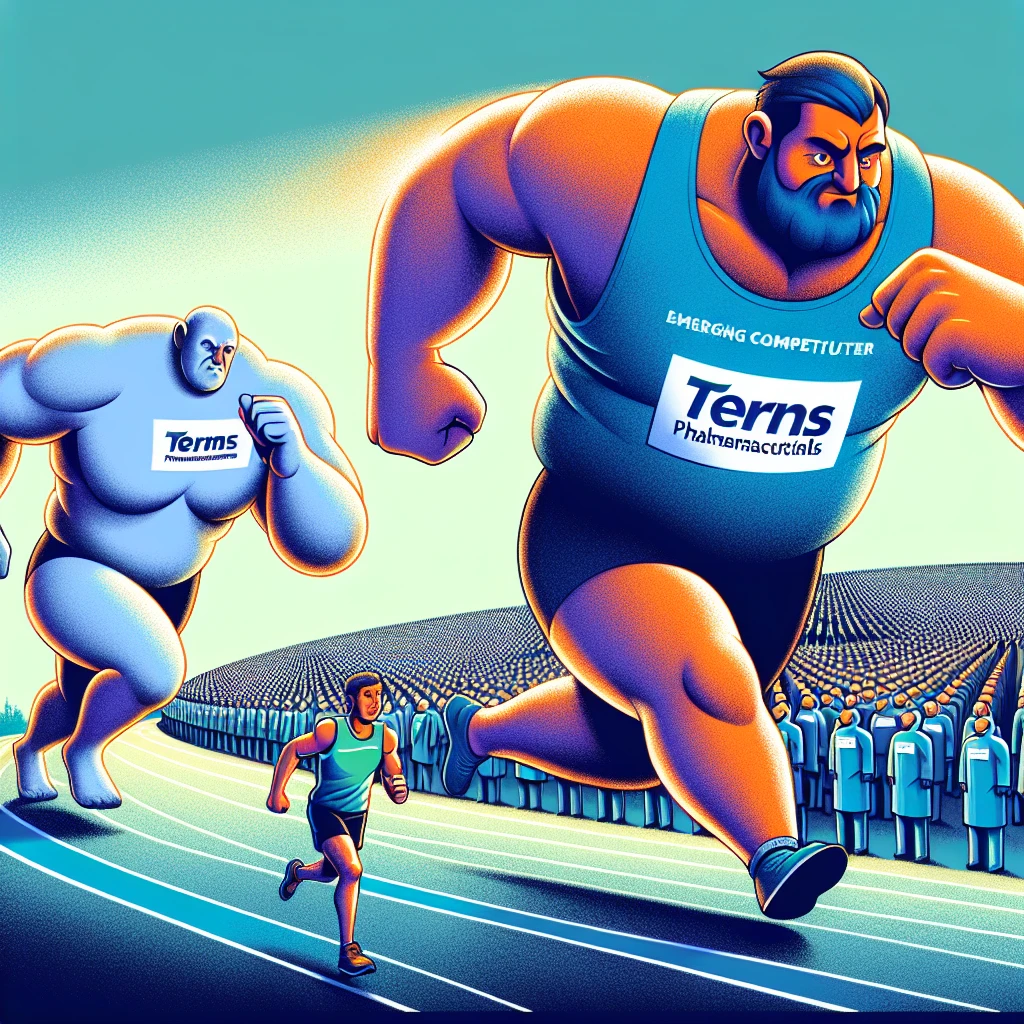Contents
The Future of the Anti-Obesity Market: Opportunities and Challenges
Goldman Sachs forecasts that the anti-obesity market could soar to a staggering $100 billion by the close of this decade. Presently, the market is largely controlled by giants like Eli Lilly and Novo Nordisk. However, this landscape could shift dramatically as new players and innovations enter the scene. Currently, the most popular treatments for weight loss, glucagon-like peptide-1 (GLP-1) therapies, are administered through injections. Yet, the development of oral medications is underway, which could become more appealing for patients requiring long-term treatment.
A Promising Contender: Terns Pharmaceuticals
Investors should pay close attention to Terns Pharmaceuticals, a company that recently experienced a significant surge in its stock price following positive clinical trial outcomes. Terns is developing a potential drug that could compete for a share in the rapidly expanding anti-obesity sector.
Encouraging Early Results
On September 9, Terns Pharmaceuticals, based in California, announced promising findings from a 28-day clinical trial of its once-daily GLP-1 pill, TERN-601. The trial demonstrated that the pill was well tolerated, with participants experiencing a placebo-adjusted average weight loss of 4.9% at the highest dosage of 740mg. Notably, over two-thirds of trial participants lost more than 5% of their body weight.
These results are especially promising when compared to those from Viking Therapeutics’ oral drug VK2735, which achieved a placebo-adjusted weight loss of up to 3.3% over a similar 28-day period. It’s worth noting that Viking’s trial involved a much lower maximum dosage of 40mg. Despite these differences, Terns’ progress is noteworthy, especially given that Viking Therapeutics boasts a market capitalization of $7.4 billion, approximately ten times that of Terns.
While early-stage trials of oral weight-loss medications from Eli Lilly and Novo Nordisk have shown potential for over 13% weight loss, these results were achieved over significantly longer periods of 36 to 68 weeks. Terns plans to advance to phase 2 trials of its weight-loss drug next year.
Terns Pharmaceuticals’ stock has been on an upward trajectory, gaining approximately 40% this year. However, recent days have seen a pullback following the announcement of a $150 million offering. It is common for companies to leverage a stock rally to raise capital, as a higher stock price allows for issuing fewer shares, thereby minimizing dilution.
As Terns continues to invest in the development of its weight-loss pill, further capital raises are expected to support its cash flow needs. Over the past 12 months, Terns has expended nearly $79 million on operating activities. Given the absence of an approved product, ongoing losses and cash burn are anticipated. Even with promising future trials, the necessity for continued stock offerings suggests that investors should brace for a volatile journey with Terns.
Investment Considerations: Is Terns Pharmaceuticals a Wise Choice?
While the initial trial results for TERN-601 are encouraging, it may be premature to invest in Terns Pharmaceuticals’ stock. The development process is still in its early stages, and there is no certainty that the weight-loss pill will reach the market. Investing in biotech stocks inherently carries risk, and it’s crucial to mitigate it. Despite Terns’ current low valuation, the anti-obesity market is becoming increasingly competitive, with the potential for more effective treatments to emerge by the time Terns’ product is market-ready.
This investment represents a high-risk, high-reward opportunity. If you are prepared to make a modest investment, understanding the potential for significant losses if TERN-601 does not succeed, then this stock could be worth considering due to its substantial upside potential. However, for most investors, a cautious approach is advisable given the considerable risk and uncertainty involved.
Buy Alert: Seizing a Second Chance to Invest
The Motley Fool Stock Advisor has achieved an impressive average return of 755%, vastly outpacing the S&P 500’s 165% gain since 2002*. The analyst team has a track record of identifying key moments to double down on promising stocks, some of which have delivered exceptional returns.
– Nvidia: A $1,000 investment in 2009 would have grown to $299,706!*
– Netflix: A $1,000 investment in 2004 would have reached $381,230!*
– Apple: A $1,000 investment in 2008 would be worth $41,011!*
Currently, the team is issuing “Double Down” alerts for three outstanding companies, presenting a rare investment opportunity that might not come again soon.
See the stocks ›
*Stock Advisor returns as of 09/19/2024




